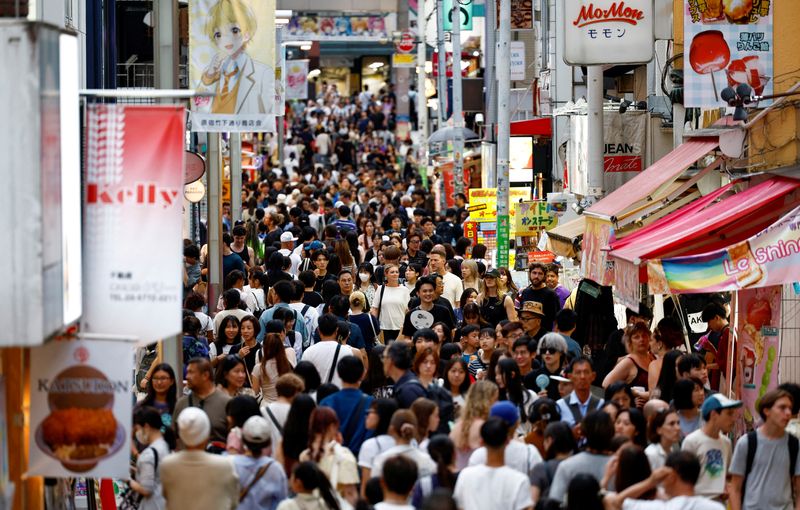By Leika Kihara
TOKYO (Reuters) -Japan's annual wholesale inflation held steady at 3.8% in December on stubbornly high food costs, data showed on Thursday, highlighting persistent price pressures that may prod the central bank to raise interest rates next week.
The data comes in the wake of Bank of Japan Governor Kazuo Ueda's remarks on Wednesday that the bank will debate whether to raise rates at the Jan. 23-24 meeting, signaling it will take borrowing costs higher barring any market shocks after U.S. President-elect Donald Trump takes office on Monday.
The year-on-year rise in the corporate goods price index (CGPI), which measures the price companies charge each other for their goods and services, matched a median market forecast and followed a 3.8% annual increase in November.
The increase was driven by a 31.8% jump in agricultural goods costs as the price of rice continued to soar. Fuel costs also rose due to the phase-out of government subsidies aimed at curbing utility and gasoline prices.
An index measuring yen-based import prices rose 1.0% in December from a year earlier, the data showed, a sign the yen's weakness continued to inflate costs for companies.

"Wholesale inflation remains under strong upward pressure," said Takeshi Minami, chief economist at Norinchukin Research Institute, adding that Trump's tariff, immigration and energy policies could affect Japan's monetary policy including through exchange-rate moves.
The data on wholesale prices, which are closely watched as a leading indicator of consumer price trends, will be among factors the BOJ will scrutinise in deciding whether to raise interest rates next week.